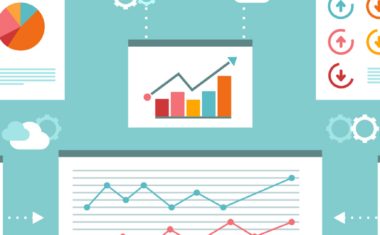Despite economic uncertainties and layoffs at tech companies, there’s an increasing demand among students eager to break into the field of data science. In the past three years, enrollment for online data science master’s degree programs has increased by 20%, according to Fortune Magazine. However, anyone who has looked into a data science master’s degree can tell you that there are two major drawbacks: the time it takes and the money it costs.
So if you’re interested in launching a career in data science, but don’t have the resources to commit to a master’s program, then you should know that there’s another viable alternative. You can learn data science on your own time, at an affordable rate. You can even take up a free data science course to see if you like the field! Online data science courses and data science bootcamps offer high-quality data science training and certifications and for a fraction of the cost of most master’s programs. These platforms also offer flexible scheduling options, meaning that you can commit to a data science bootcamp or data science course while maintaining your current commitments.
In this article, we evaluate 9 of the best data science courses to simplify your journey in this field. Learning data science and building your data science skills doesn’t have to be expensive or time-consuming, so let’s get started!
5 Foundations of Data Science
Before you decide whether or not to learn data science (either through a big data analytics or machine learning bootcamp), you have to know more about data science itself. Here are five things you may not have known about data science:
Data science is interdisciplinary:
Data science is inherently interdisciplinary, drawing upon concepts and techniques from various fields such as statistics, computer science, mathematics, and domain-specific knowledge. It involves a holistic approach to extracting actionable insights from data, combining both technical and domain expertise.
Data science is all about exploration:
Data science involves thorough exploration and data analysis. This includes cleaning and preprocessing raw data, identifying patterns and trends, and using statistical analysis to derive meaningful insights. Exploratory data analysis (EDA) is a fundamental step in the data science process.
Data science is used to make predictions:
A key characteristic of data science is the application of predictive modeling techniques. This involves the use of algorithms and statistical models to make predictions or classifications based on historical data. Machine learning, a subset of data science, plays a significant role in building predictive models.
Data science solves problems:
Data science is fundamentally about solving real-world problems. Whether it’s optimizing business processes, improving decision-making, or predicting future trends (e.g. during financial analysis or planning), data scientists use their skills to address specific challenges by leveraging data-driven insights. The focus is on providing practical solutions with tangible benefits.
Data science follows an iterative process:
Data science projects often follow an iterative and cyclical process. This involves refining models based on feedback, incorporating new data, and continuously improving the analysis. The iterative nature of data science reflects the dynamic and evolving nature of both data and the questions being addressed.
Good luck with your exciting journey into the field!
How We Evaluate Data Science Courses and Bootcamps
When it comes to choosing the best data science courses, Springboard believes in making informed decisions. So we’ve brought together a panel of data science experts in the field to evaluate the various data science courses out there. Our data science panel inspects each data science course based on four pre-determined criteria that are fundamental to a strong learning foundation in data science.
It’s not enough to just say a course is good or not. We dig deeper, evaluating the skills that are taught, the bootcamp’s affordability, the range of specializations offered, and the strength of its job placement support.
Skills
When evaluating a data science course, it’s essential to look at the set of skills it trains you in. We consider whether it covers the data science fundamentals, such as statistical analysis and programming languages like Python or the R programming language, computer science basics, as well as more advanced topics like machine learning and machine learning algorithms, deep learning, exploratory data analysis, and data visualization. We want to make sure that the data science course will prepare you and set you up to land one of the many data science jobs out there.
Affordability
While it’s true that quality education is an investment, we believe it shouldn’t break the bank. Affordability is a significant factor when choosing a data science course. It’s not just about the price, though; we examine the value the data science course provides relative to its cost. The goal is to find a data science course that delivers top-notch education and skill-building opportunities without stretching your budget too thin.
Specialization
The field of data science is vast, with numerous subfields and specializations, from machine learning and artificial intelligence to data visualization and predictive analytics. When evaluating a data science course, we consider the variety of specializations it offers. Data science courses that provide a range of specializations allows learners to delve deeper into their areas of interest, further enhancing their expertise as a data scientist and marketability in the job market.
Job Placement Support
The ultimate goal of pursuing a course is to land your dream job. That’s why we evaluate whether a course offers job placement support. This could include career counseling, resume review, interview preparation, or connections with potential employers and data science jobs.
The availability and quality of job placement support can significantly enhance your chances of starting a successful career in data science after course completion.
9 Best Data Science Courses
Let’s look at the top 9 data science courses below.
Springboard
With an established record of successful graduates that are working data scientists and data analysts today, the Springboard Data Science Bootcamp gives you the chance to build your data science skills and master machine learning techniques. Its flexible, part-time structure and practical data science training offers you the opportunity to launch your data science career in just six months, meaning you can learn at your own pace and still have additional support provided whenever necessary. There is also an introduction to data science course, if you are a complete beginner.
One of the compelling features of this bootcamp is the integration of 28 mini-projects in data analysis and three capstone projects students work on. These, coupled with an advanced specialization project, offer an excellent opportunity for you to apply your data science skills in a practical context, building a portfolio that appeals to future employers.
With an average salary increase of $25,000 for Springboard data science graduates, this course provides a tangible return on investment and a must for anyone that wants to learn data science in a flexible and affordable way.
PRICE
$13,900 upfront with options for month-to-month payments, deferred tuition, or financed loans
RATING
FEATURES
- 1-1 mentorship and coaching
- 100% online, part-time course with a flexible schedule
- 28 mini-projects and three capstone projects for hands-on learning
- Partnership with DataCamp for additional resources
- Access to an exclusive AI learning series
- Career-focused curriculum
- 1:1 calls with a career coach and mock interviews
- Access to a large network of data science mentors
JOB GUARANTEE?
Yes
Udemy
The Data Science A-Z™ course on Udemy highlights practical, real-world data science scenarios. It replicates the challenges data scientists encounter, including corrupt data, anomalies, and irregularities, preparing students for the realities of a data science career.
The course covers the entire data science process—from data cleaning and preparation to basic visualization, modeling, curve fitting, exploratory data analysis and presenting the findings. With its hands-on approach, students are directly involved in solving complex real-world problems, whether new to the data science field or professionals seeking to hone their skills.
Students are free to navigate the course and pick and combine sections into their unique journey, or they can opt for the whole course instead.It’s a great introduction to data science and a must for aspiring data scientists.
PRICE
$85.50
RATING
FEATURES
- No 1-1 mentorship
- Over 21 hours of on-demand video lessons
- Seven in-depth articles that supplement the video content
- Lifetime access to all course materials
- Real-world examples and hands-on exercises
JOB GUARANTEE?
No
IBM on Coursera
Introduction to Data Science Specialization is a four-course series from IBM available on Coursera, perfect for those intrigued by the vast potential of data science and its practical applications across different industries. It’s a free data science course for anyone with a Coursera subscription. The course materials are curated so anyone can kickstart their data science journey without any prerequisite in-depth knowledge of computer science or programming languages. You’ll start with an introduction to data science and build your way to more complex topics, like using machine learning and machine learning algorithms for data analysis.
This course takes you on a journey into what data science is and the roles data scientists play. You’ll learn about big data, statistical analysis, and relational databases and get hands-on experience with tools such as RStudio, GitHub, and SQL. You’ll also work on several labs and projects to solve data science problems and apply your skills to real-world datasets.
Upon completion, you earn a data science certificate from Coursera and a digital badge from IBM, recognizing your expertise in data science foundations. It’s one of the best free data science courses you can get.
PRICE
Free with a Coursera subscription
RATING
FEATURES
- No 1-1 mentorship
- Hands-on familiarity with data science tools
- Training in SQL and cloud database querying using Python from Jupyter Notebook
- Multiple hands-on assignments and labs
- Digital badge from IBM
- Free data science course (with subscription)
JOB GUARANTEE?
No
Udacity
As a beginner-level program, the Intro to Data Analysis course from Udacity teaches you to pose insightful questions, wrangle and structure data, analyze data, identify patterns, make predictions, and effectively communicate findings.
One of its highlights is the focus on computer science fundamentals and Python libraries like NumPy, Pandas, and Matplotlib, built specifically for data science projects. The course, part of the Data Analyst Nanodegree program, is delivered by industry experts, provides self-paced progress, and is noted for its highly curated content.
This course promises to act as a stepping stone to a basic understanding of the data analysis process as a whole, making it a perfect introduction to data science and the more advanced phases of the process. It’s also an ideal first step towards careers in web and app development, machine learning, or AI.
PRICE
Free
RATING
FEATURES
- No 1-1 mentorship
- Self-paced learning module
- Content taught by industry experts
- Interactive quizzes and experiential activities
- Emphasis on machine learning
JOB GUARANTEE?
No
University of Michigan on Coursera
The Applied Data Science with Python Specialization course, offered by the University of Michigan on Coursera, is a skill-based certification program for students with a basic background in Python or object-oriented programming. It teaches data science techniques such as statistical analysis, information visualization, and machine learning through popular Python toolkits.
The program, structured into five courses, grants you a shareable certificate upon completion, enhancing your professional profile. It’s important to note that this course is an intermediate-level specialization, which means you’ll need some hands-on experience. But don’t let that intimidate you, as the program will guide you through the complexities of applied data science at a manageable pace.
Each of the five courses introduces you to a different facet of data science. You’ll start by getting familiar with Python and data manipulation, followed by charting and data representation, then on to applied machine learning, text mining, and finally, social network analysis. By taking these courses in sequence, you can build upon your basic knowledge and skills.
PRICE
Free with a Coursera subscription
RATING
FEATURES
- No 1-1 mentorship
- Earn a shareable certificate upon completion
- 100% online courses allowing you to learn at your own schedule
- Hands-on projects included in every course
- Subtitles are available in multiple languages
- Takes approximately five months to complete at a suggested pace of 7 hours per week
JOB GUARANTEE?
No
General Assembly
General Assembly’s Data Science Immersive course is a career transformation program for those seeking to establish themselves in the field of data science. In this full-time, intensive bootcamp, you’ll learn essential skills such as predictive modeling, machine learning, exploratory data analysis and data visualization.
Whether you’re interested in public policy, robotics, or FinTech, General Assembly’s network of data experts, instructors, and alumni is there to guide and support you throughout the process.
This course isn’t just about learning—it’s about doing too. You’ll have the chance to showcase your skills with a professional project that proves your abilities. Students also receive personalized job support at every step of the course, including mock technical interviews, whiteboard challenges, and connections with top employers. You are practically guaranteed work as a data scientist by completing one of their data science courses.
PRICE
Not publicly available
RATING
FEATURES
- 1:1 personalized career coaching
- An extensive network of data experts, instructors, hiring partners, and alumni
- Personalized job support
- Five projects to compile into a professional-grade portfolio
- Hands-on exposure to Python, data analysis, and statistical modeling
- Access to hiring discussions, guest panels, and “day-in-the-life” talks from industry professionals
- Course availability on 30 campuses worldwide and online
JOB GUARANTEE?
Yes
Flatiron
Flatiron’s Data Science course promises to revolutionize your career path by helping you become a professional data scientist in just 15 weeks. Whether you are a novice or someone with a degree, this course meets you where you are in your career. The curriculum, crafted by seasoned industry professionals, covers fundamental to advanced aspects of data science, emphasizing emerging AI and machine learning tools.
The course offers flexible start dates and formats. Full-time students experience a fast-paced learning environment that prepares them for the data analysis field in just 15 weeks, while part-time students have the freedom to complete the course at their own pace over 40 weeks.
PRICE
Not publicly available
RATING
FEATURES
- No 1-1 mentorship
- Emphasis on emerging technologies, including AI tools
- Option for full-time (15 weeks) or part-time (40 weeks) course
- Access to alumni network and potential job opportunities
- Engaging course structure, including group work, design sessions, and lab time
JOB GUARANTEE?
Yes
Brainstation
With a 90%+ global hiring rate within 180 days of graduating, BrainStation’s Data Science Bootcamp offers an impressive launchpad for your career in data science. As a student enrolled in this course, you get to work on a real-world business problem presented by leading companies such as Microsoft, Mastercard, and Google, granting you invaluable hands-on programming experience before graduating.
The bootcamp is offered on both full-time and part-time schedules, providing the flexibility to fit your learning pace and commitments. Each day is carefully structured with lectures, lab challenges, project work, and one-on-one coaching sessions, ensuring you get the most out of your learning journey. At the end of the bootcamp, you get to showcase your final project on Demo Day, an event attended by your peers, hiring managers, and alumni from cutting-edge companies.
PRICE
Not publicly available
RATING
FEATURES
- No 1-1 mentorship
- Real-world industry experience
- Connections with top employers
- Full-time or part-time course availability
- Regular check-ins
- Demo Day to showcase final data science projects and network with potential employers
- Workshops throughout the program
JOB GUARANTEE?
No
Thinkful
Thinkful’s Data Science Bootcamp, which can be completed in six months, covers a variety of critical skills such as statistical concepts, calculus, computer programming, data visualization, and machine learning. Above all, Thinkful graduates have been hired by some of the biggest names in the industry, including Google, IBM, Amazon, Twitter, and Walmart Labs, reflecting the program’s practical relevance and industry recognition.
With daily live online lectures and workshops, self-paced lessons, and optional office hours, students have the opportunity to build job-ready skills that employers are actively looking for. The bootcamp also offers 1:1 mentorship and career coaching, providing personalized guidance and feedback throughout the entire learning journey.
PRICE
$9,500 upfront
RATING
FEATURES
- 1-1 mentorship
- Online, part-time program
- Daily live online lectures and workshops
- On-demand technical coaching
- Personalized career coaching
- Exclusive access to open data science roles for students
JOB GUARANTEE?
Yes
Making the Most out of a Data Science Course
Understanding the course’s curriculum, structure, and opportunities for practical implementation of the skills learned can significantly enhance your learning experience. Ask yourself these questions to get the most out of your course:
What Should You Expect To Learn in a Data Science Course?
At a minimum, a data science course should cover the fundamental pillars of data science: statistics, data analysis, data visualization, and machine learning.
A good course should introduce you to essential programming languages such as Python and R and provide a firm grounding in SQL for database handling. Expect to research specialized topics like deep learning, natural language processing, and predictive modeling.
A practical approach to these topics is key, so look for courses that provide real-world projects and hands-on exercises that help you apply what you’ve learned.
What Will the Schedule Look Like?
The schedule for a data science course can vary greatly depending on whether it’s full-time, part-time, or self-paced.
Full-time data science courses usually take place during weekdays, with a mix of lectures, tutorials, and individual or group project work. Part-time courses offer more flexibility, with classes often held in the evenings or on weekends to accommodate students who work or have other commitments. The self-paced courses provide the highest level of flexibility, allowing you to learn whenever you please.
Regardless of the mode, you should expect to dedicate a significant amount of time to independent study and project work outside of formal class hours.
How Can You Implement the Learnings?
Start by working on projects that interest you, even small ones, and gradually increase the complexity of the projects you take on as you become more comfortable. Participate in data science competitions or Kaggle challenges to test your skills in a competitive environment. It can also be helpful to join a data science community like DataKind, which can greatly enhance your studies through peer learning and working on practical, real-world challenges.
Always look for courses that offer industry-based projects, as these provide the best simulation of what you’ll face in your data science career. The more hands-on experience you get, the better you’ll understand the material and the more attractive you’ll be to potential employers.
Get To Know Other Data Science Students
Sam Fisher
Data Science Engineer at Stratyfy
Corey Wade
Founder And Director at Berkeley Coding Academy
Isabel Van Zijl
Lead Data Analyst at Kinship
What Kind of Job Can You Get After an Online Data Science Course?
There are several high-paying data science jobs that you can land after completing a data science course. There is, of course, the title of junior data scientist, but that’s just one of many roles data scientists can occupy.
You might also work as a machine learning engineer, creating regression models and algorithms that machines can use to improve their performance. If you’re more inclined toward the programming side, a role as a data engineer might suit you, as it involves designing, building, and maintaining the data architecture. You might also consider roles such as a data architect, business intelligence analyst, or even managerial roles like data & analytics manager.
There are tons of options out there when you learn data science, and the specific role will depend on your interests, skills, and the particular aspects of data science you choose to specialize in.
FAQs About Data Science Courses
We’ve got the answers to your most frequently asked questions.
Which Data Science Course Is Best for Beginners?
Data science courses for beginners should thoroughly cover key concepts and techniques in data science, such as Python or R programming, exploratory data analysis, statistical analysis, and machine learning. These sorts of data science courses are often a great place to start.
Data science courses like the IBM Data Science Professional Certificate on Coursera, the Introduction to Data Science in Python on Udacity, or Springboard’s Data Science Career Track are often recommended for complete beginners due to their well-structured curriculum and practical approach to learning.
How Long Is a Data Science Course?
The length of a data science course varies depending on the specific course and the individual’s learning pace. Short introductory courses take a few weeks to complete with part-time study. On the other hand, more in-depth data science courses, such as data science bootcamps, often last for several months.
Can a Non-IT Person Learn Data Science?
While having a background in IT or a related field can provide a strong foundation for learning data science, it is by no means a prerequisite. Many non-IT professionals successfully transition into data science by gaining the necessary skills through online courses, bootcamps, or self-study.
Can You Become a Data Scientist Without a Degree?
Yes, becoming a data scientist without a formal degree is possible. Even though many data scientists have advanced degrees in related fields, what’s most important are your skills and programming knowledge, which can be obtained through online data science courses, certifications, bootcamps, and solving real-world problems. Employers are increasingly prioritizing practical experience and skills over formal qualifications. You can even learn data science on your own online by taking a free data science course or trying your hand at open source data science projects.
How Long Does It Take for a Beginner To Learn Data Science?
The time it takes a beginner to learn data science largely depends on the individual’s prior knowledge, the amount of time they can dedicate to studying, and the depth of knowledge they want to acquire. You can learn data science in months or years.
For someone starting from scratch and studying part-time, it might take several months to a year to grasp the basics of data science, such as Python or R programming, statistical skills, and basic machine learning models. Mastering more complex topics and becoming job-ready might take a few years of dedicated study and hands-on practice. Data science courses offer more structure, and might accelerate the process.
Where Can I Find a Free Data Science Course?
The good news is that there are free data science courses online – but not every free data science course is worth it. After all, you get what you pay for! Many online learning platforms, such as Coursera, edX, and Udemy, offer free data science courses. These courses cover a wide range of topics, from introductory data science to more advanced machine learning and artificial intelligence. You’ll learn to analyze data and master data science techniques. Many data scientists have started their careers this way.
What Do Data Scientists Do?
Data scientists are responsible for collecting, cleaning, analyzing, and interpreting large amounts of data to extract meaningful insights that can be used to make informed decisions. Data scientists use a variety of skills and techniques, including mathematics, statistics, programming, and machine learning. Data scientists also work with stakeholders to understand their business goals and identify the data that is needed to solve their problems.
Can you Become a Data Scientist Through a Free Data Science Course?
It is possible to become a data scientist without pursuing a degree in Computer Science, although many data science jobs require one. A free course usually doesn’t provide enough insight or practice on its own, but there are many free introductory courses that can teach you the basics and give you insight into interesting projects you can pursue. If you really want to become a data scientist, a free course can help you learn more about the profession and prepare you as you embark on this journey of discovery. Many data engineers recommend free courses on their YouTube channels or blogs, so keep an eye out within your professional network.
What Role Does the Python Programming Language Play in Data Science?
The Python programming language is widely used in the field of data science. Its versatility, extensive libraries, and community support make it a popular choice for various tasks within the data science workflow. Virtually all data scientists and data analysts need basic programming skills to work in the field, which is why learning the Python programming language is recommended before delving deeper into the field of data analytics and data science. There are many free courses that will help you pick up Python programming skills. It’s an in-demand skill and worth the effort to learn.
What Is the Difference Between Linear Algebra and Computer Algebra?
Linear Algebra focuses on the study of linear relationships and structures using vectors and matrices. Computer Algebra deals with the symbolic manipulation of mathematical expressions and equations using computational algorithms. Computer Algebra is used for symbolic mathematical computations, making it valuable in fields where exact symbolic solutions are essential. You’ll need a basic understanding of linear and computer algebra in the field of data science.
What Is Data Mining?
Data mining is a process of discovering patterns, trends, correlations, or valuable information from large sets of data. Data mining involves using various techniques and algorithms to analyze and extract knowledge from structured or unstructured big data.
Since you’re here…Are you interested in this career track? Investigate with our free guide to what a data professional actually does. When you’re ready to build a CV that will make hiring managers melt, join our Data Science Bootcamp which will help you land a job or your tuition back!






